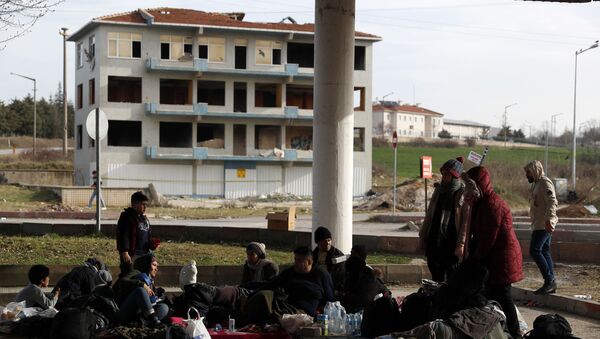Newcomers to the Greek islands are due to be offered €2,000 per person – over five times the usual sum – to go home under a voluntary scheme launched by the European Union in a bid to deal with the worsening conditions in migration camps.
The United Nations’ International Organisation for Migration (IOM), which is in charge of a number of voluntary return programmes, says the offer will be there for one month, due to fears that an open-ended plan would see a huge influx of migrants in the rest of Europe.
The programme, which excludes the homeless, is specially designed as “a window of opportunity for a targeted group” – those migrants that have clear-cut incentives for better living standards.
The IOM is to run the plan in collaboration with the EU border agency Frontex.
“Refugees will not return, of course, they can’t return, but economic migrants that maybe know they will not get a positive asylum decision could be interested in doing that", the EU’s home affairs commissioner, Ylva Johansson, told journalists, as cited by The Guardian.
She pointed out the scheme promises to ease the pressure on locals migration camps, infamous for their “totally unacceptable” conditions.
The approximate number of people expected by the EU commission to partake in the project is around 5,000, although the body doesn’t have sufficient statistics on its hands on how many people travelling to the Greek islands are “economic migrants” rather than refugees.
Likewise, migrants in mainland Greece will also be offered monetary compensation, but the latter is expected to be much lower than €2,000.
Over the past four years, an estimated 18,151 people have opted to return home from Greece under a voluntary return programme funded from the EU budget.
The new programme comes as the EU recently earmarked €700 million in emergency aid for Greece, after the commission vowed to do so in the wake of Turkey’s announcement about “opening the gates” for migrants to cross into Europe in retaliation for Brussels' condemnation of its operations in northern Syria.
Even before the recent spark in tensions on the Turkish border, as many as 36,000 asylum seekers were reported to be staying in reception centres scattered around five Greek islands, while their capacity is roughly 5,400 people.
On Lesbos alone, over 20,000 people are currently staying at the Moria camp, where earlier this month, volunteer doctors working there were attacked by a crowd carrying massive nail-studded sticks and had to flee the area.

